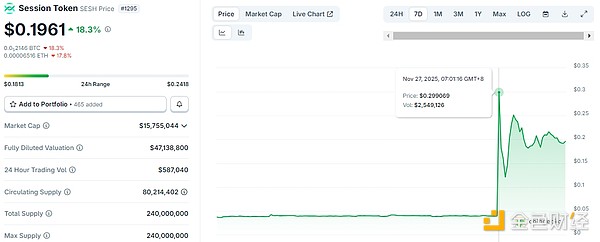Fintech Firm OnePay, Backed by Walmart, To Introduce Crypto to Banking App: Report
A fintech company backed by retail giant Walmart is reportedly going to introduce crypto assets to its banking app.
According to a new report by CNBC, anonymous people familiar with the matter say that OnePay – a firm founded in 2021 that is majority owned by Walmart – will soon be offering digital asset products such as Bitcoin ( BTC ) and Ethereum ( ETH ) to customers on its mobile application.
The report says that customers will be able to hold their crypto assets in the mobile app, convert them to cash, and then use the funds to purchase items or make credit card payments.
Last month, Zerohash – the firm that is collaborating with OnePay to bring crypto assets over to its app – raised $104 million in funding from prominent financial firms as a means of entangling itself with blue-chip institutions that are building crypto-related products.
According to the report, OnePay’s app is now ranked fifth on the Apple store’s list of free finance applications, beating out global powerhouses such as Robinhood and JPMorgan Chase.
The report also finds that every app ahead of OnePay on that list, including marquee payments apps such as PayPal and Venmo, offer digital asset products.
Though Walmart had a large hand in creating OnePay, it was made in a way that wouldn’t make it limited to customers of the retail titan, appealing to Americans who may have been disenfranchised by banks.
Generated Image: Midjourney
Disclaimer: The content of this article solely reflects the author's opinion and does not represent the platform in any capacity. This article is not intended to serve as a reference for making investment decisions.
You may also like
Bitcoin security reaches a historic high, but miner revenue drops to a historic low. Where will mining companies find new sources of income?
The current paradox of the Bitcoin network is particularly striking: while the protocol layer has never been more secure due to high hash power, the underlying mining industry is facing pressure from capital liquidation and consolidation.

What are the privacy messaging apps Session and SimpleX donated by Vitalik?
Why did Vitalik take action? From content encryption to metadata privacy.

The covert war escalates: Hyperliquid faces a "kamikaze" attack, but the real battle may have just begun
The attacker incurred a loss of 3 million in a "suicidal" attack, but may have achieved breakeven through external hedging. This appears more like a low-cost "stress test" targeting the protocol's defensive capabilities.


